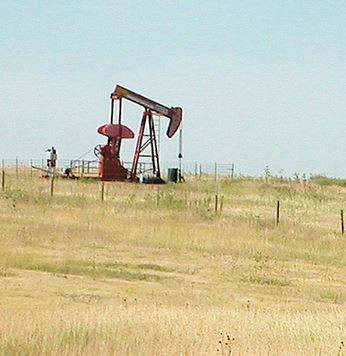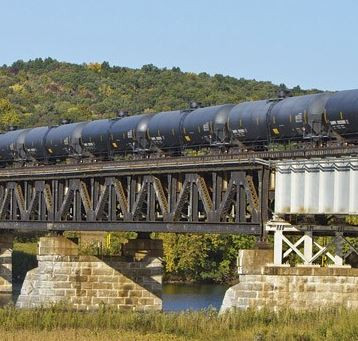June 1, 2015
May 2015 at Policy Integrity: Harmonizing Preservation and Production; Consumer Product Safety Commission Comments; In the News: Oil Train Safety; On the Docket: Domestic Violence and Legal Aid; Alumni Spotlight: J. Scott Holladay
-

New Report: Harmonizing Preservation and Production
Leasing federal lands for drilling and mining generates a huge amount of revenue for the United States — more than $14 billion in 2013. But the Department of the Interior (DOI), which oversees these leases, uses an antiquated fiscal system that deprives taxpayers of hundreds of millions of dollars. Minimum bids and rental rates for onshore oil and gas leases have remained at $2 per acre for decades, and low royalty rates give private companies a windfall at taxpayers’ expense. Our new report analyzes how DOI could modernize the fiscal terms for oil, gas, and coal leases to ensure a fair return to the American public. Our recommendations include raising minimum bids to account for option value, and ensuring that rental and royalty rates incorporate social and environmental externalities. We recently sent the report to DOI, and our public comments on the new offshore leasing program also pushed for some of these changes.
-

Consumer Product Safety Commission Public Comments
Since 1996, there have been at least 285 incidents of child strangulation by window covering cords. The Consumer Product Safety Commission is considering a regulation to address this issue, and we recently submitted public comments on the Commission’s advance notice of proposed rulemaking. We offered a number of suggestions for improving upon the Commission’s preliminary analysis of the costs and benefits of eliminating cords from window coverings. These included recommendations that the Commission consider the prevention of parental grief as an unquantified benefit of regulation and that it perform separate cost-benefit analyses for each major category of covering (e.g., vinyl blinds, wood blinds, roman shades).
-

In the News: Oil Train Safety
Twenty-five million Americans live within the “blast zones” of trains carrying flammable crude oil across the country. These trains share track with commuter rail in many urban areas and pass over important sources of drinking water. According to policy director Jayni Hein, the Department of Transportation’s new safety standards for tank cars carrying volatile crude oil mark only incremental progress, as it will be years until dangerous cars are retrofitted or retired from the rails. In a piece in The Hill, Hein argues that the standards exempt too many cars from the new rules, delay the phaseout of dangerous cars for too long, and fail to implement strong safety policies in many urban areas. She recommends that DOT prioritize additional measures, like increasing railcar and track inspections, lowering speed limits in urban areas, tightening design standards for retrofitted cars, and improving coordination with states.
-

On the Docket: Domestic Violence and Legal Aid
Domestic violence is a significant public health problem in the United States, and evidence indicates that its social costs extend far beyond the private costs borne by victims and their families. Policy Integrity will soon complete a research project that explores the economic benefits of providing civil legal assistance to survivors of domestic violence. Our forthcoming report will explore how access to legal services has been shown to reduce the incidence of domestic violence, by helping survivors obtain civil orders of protection, housing, and other forms of assistance. Evidence suggests that civil legal assistance might indeed be cost-benefit justified — a finding that could have significant policy implications.
-

Alumni Spotlight: J. Scott Holladay
J. Scott Holladay, a former economic fellow at Policy Integrity, is currently an assistant professor of economics at the University of Tennessee. Holladay’s recent research focuses on the relationship between international trade and the environment, and the impact of increased natural gas production on electricity markets and the environment. He is also continuing to work with Policy Integrity on a project evaluating the national flood insurance program. “During my time at Policy Integrity, I learned how to craft research to answer questions that policymakers care about, and develop a research agenda that can influence policy debates,” says Holladay.
